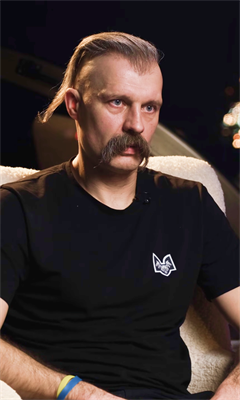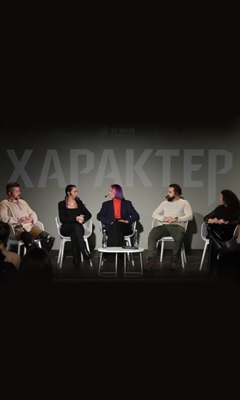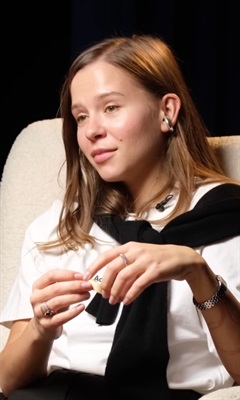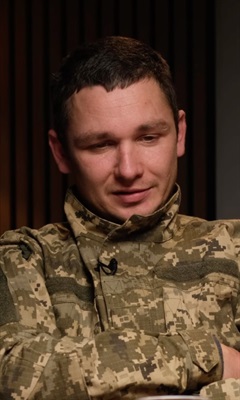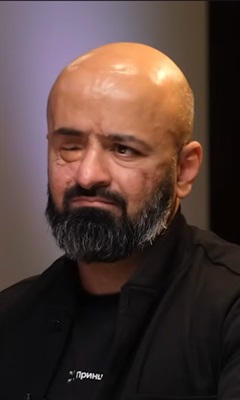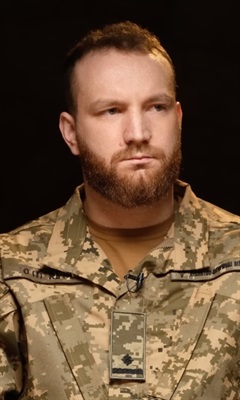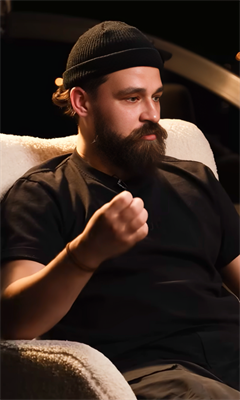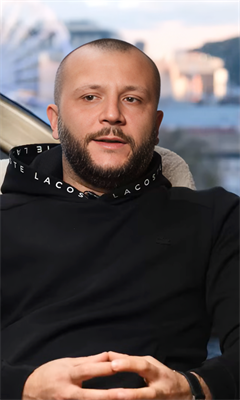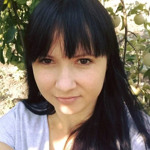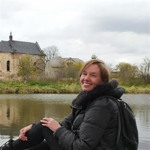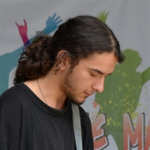We have nowhere to return to. How Lutsk entertainment center became a home for 6,000 people
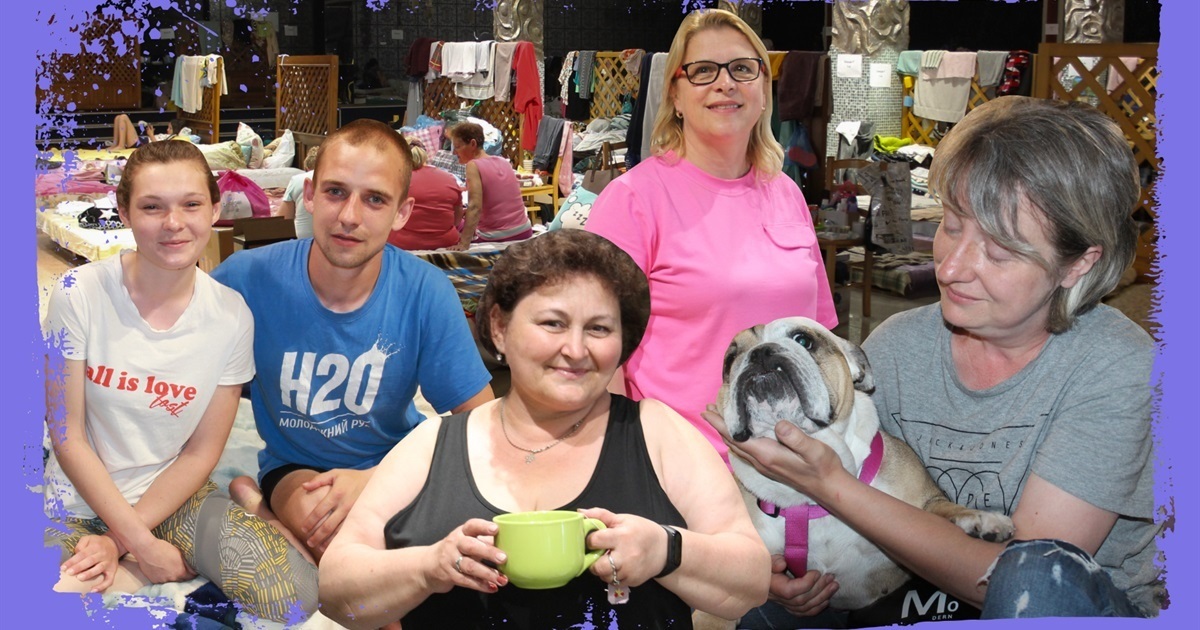
The Evacuation.City journalist visited the temporary shelter and learned what it is like to live in an entertainment center.
People were settled already on the second day of the war
At the center entrance, top manager Tetyana Repnytska greets me. She is the head of the business academy and currently also deals with displaced people’s issues. The woman says that the idea of arranging the center for evacuees belongs to businessman and philanthropist Viktor Korsak.
“There was a hostel operating within our entertainment center. Already on the second day of the war, we settled people from Bucha and Gostomel there. We realized there would be more evacuees, and the hostel with its hundred places would simply be unable to hold them. So we started to arrange additional accommodation in the restaurant’s premises operating in the entertainment center prior the war. Now 200 people can stay here at the same time,” says the center’s head.
Tetyana Repnytska
In the first days of the war, they had to make beds until 2 a.m., recalls Tetyana Repnytska. Pallets were used as a basis, and partners provided new orthopedic mattresses. The improvised beds even included bed rails that used to serve as partitions in the restaurant. Thus administrators strived to create at least some kind of home comfort and personal space for the people.
“We had an aid center in the open space finished already on the fifth day of the war. We organized a call center where people could contact us, and notified local governments and volunteers about our existence. And the influx started,” the woman says.
Everyone who comes to the center must fill a special questionnaire. This significantly helps respective authorities to record and coordinate internally displaced persons. Then people can live here as long as they need. The only requirement is to follow simple rules.
In the settlement, people can wash their clothes and dry them on a special dryer. Here, one can get free medical care and legal advice. Also, a humanitarian aid room was set up in the center. Therefore, people who need clothes and shoes can choose something for themselves.
“A lot of locals brought their things. We once had a family with two children, and the woman was pregnant with the third child. She gave birth in our perinatal center. We needed a cradle, a pram, and even a car seat, and a lot of people in social networks responded. It seems that our Volhynians are ready to help with everything they can,” Tetyana Repnytska says.
Currently, there are 150 to 200 people living in the settlement. However, during the time of its work, about six thousand displaced persons found shelter here. Some people stay in the center for a few days and move abroad, while some live here for already three months in a row.
Before They Got Here, People Lived in the Basement for 1.5 Months
Natalia Zhagrina from Kharkiv has lived in the center for a month. She came here with her mother and her pet Buba.
“February 24, 4:45. I woke up and there was no doubt: life had changed. We literally lived in the basement for 1.5 months. Twice I came under fire. The first time was when I went to the pharmacy, and enemy planes started to circle over the city. I managed to get into the metro station, but I heard the apartment blocks being bombed and I knew that my son was in one of them. The second time was when I was receiving humanitarian aid: people were running, and Grad rockets were flying behind us,” Nataliya recalls with tears in her eyes.
The woman says that despite all the terrible events that she had to go through, she did not want to leave her hometown: she put off till the last moment. But she had to leave home for the sake of her old mother.
“During this time, my mother was hospitalized three times, and the hospital, by the way, was also attacked. When I took her home, I decided that we can’t wait anymore. I couldn’t get my mother to the basement, and it was dangerous to stay in the apartment. We like it here. All the girls are so attentive. I look at many of them and think: “I wouldn't mind having such a daughter-in-law”. Now I don't want to go abroad: I’m only thinking about going back to my Kharkiv.”
There is Nowhere to Return to Because the City is Occupied
Lyudmila and Dmytro, a young couple, came to Lutsk from Novortoitske, Kherson region, prior the terrible events. They were going to get a job here and later go abroad. However, their plans failed to come true, and there was nowhere for the couple to return to.
“Our Novotroitske is already occupied. All our relatives are there. But they’ve been out of reach for two weeks already. We used to call each other every day. Our relatives told us that russian soldiers, equipment were there, occupying schools,” Dmytro Tsybulya says.
He says that it is difficult to find an apartment now because of the large influx of displaced people. The man also has bad luck with work. Now he is registered at the employment center. Dmytro is also registered at the Military Commissariat. He says that if he will need to defend the country, he will do it without hesitation.
Lyudmila Taranyuk and Dmytro Tsybulya
We Feed Two Hundred People Daily
The displaced people are fed hot meals three times a day. “Today we have spaghetti with bolognese sauce for dinner,” says chef Taras Pervanchuk as I enter the kitchen. He works here with another colleague. Every day they have to cook breakfast, lunch, and dinner for two hundred people.
“It is not the first time that we feed such a large number of people. We are professional cooks anyway. We used to work in Poland and had a stable income. I came back in autumn and started working here in the entertainment center, and my colleague came after the start of hostilities. We usually have something light for breakfast here: casseroles, sliced vegetables or cheese, fried eggs, pancakes. For lunch there is always a first course, meat course, a side dish, and a salad. Finally, for dinner we cook one full meal: stewed cabbage, potatoes, or stew,” Taras says.
“Our chefs are incredible. Every day they cook creatively using the simple products we have. They start naming the dishes, and no one knows such names. We were already joking that when the war ends and our restaurant starts working again, we will name it ‘Michelin Star,’” Tetyana Repnytska laughs.
We Don’t Have a Home Anymore
The Fomenko couple from Kharkiv arranged a real Ukrainian dinner for themselves. There is lard bought at the Lutsk market, ripe tomatoes, and fragrant bread on the table. Their apartment and everything they had earned through their hard work over the years were destroyed by the occupiers.
“We stayed in the house basement for a month,” Mykola Fomenko begins his story. “I had a complicated operation just before the war. I was discharged on February 22. Dressings had to be made right in the bomb shelters. Then we moved to the church basement. When they started bombing it, the priest said: ‘I’m not kicking you out, but you have to leave!’”
In Lutsk, the couple learned that they no longer have an apartment. They say that a list of blocks for demolition was posted on the Internet and they saw their own one in it.
“Recently, our neighbors have informed us that our apartment is open, everything is looted. It is our looters. I personally know who it is. Now we have nothing. When we left, we managed to take only the cat and documents,” recalls Mykola.
Mykola and Alla Fomenko
Live Together with Displaced People to Keep Up with Everything
Female administrative workers, for whom the center has become the second home since the beginning of the war, ensure the comfort of the settlement’s residents. The girls settled here not to go home.
"The thing is that at our place the first people have breakfast at already 8 a.m. Those helping set the tables and deliver food lack time to come to work due to the curfew. They also lack time to wash the dishes and clean the tables before the curfew in the evening. That’s why five girls decided to live here,” Tetyana Repnytska says.
Administrators Anna and Iryna
In addition to the center in the open space, evacuees were accommodated in the art hostel, which turned from a profitable business into a charity shelter with the start of the war. Mostly, families with children live here.
The hostel has 20 rooms: from two to sixteen beds. Most of them have a separate shower and bathroom. For the smallest residents, a children’s corner was made in the middle of the corridor. In the hostel, there is also a kitchen, where one can cook on their own, and a dining room, where food is brought from the common kitchen.
The Shot Man on the Bicycle, Whose Photo Went Viral, is My Husband’s Brother
For the fourth month in a row, Victoria Batura, a displaced person from Bucha, has been helping to cook in the hostel as a volunteer. The woman and her large family left the city even before the atrocities of the russian occupiers began there.
“As soon as a column of tanks stopped on a nearby street and they [the russians — translator’s note] started going to houses, we realized we had to leave. Fortunately, we did that in time ‘cause we lived in a district that faced the most terrible crimes. It was there that the occupiers shot my husband’s brother when he was riding a bicycle. This photo was probably seen by everyone. We could bury him only a month later, after de-occupation,” Victoria says.
The woman and her family did not wait for the official evacuation from Bucha since it was dangerous to go to the city center, where it was organized. Therefore, her family of 12 people took detours to Irpin.
“We were afraid to leave, but it was even more frightening to stay as since February 24, shelling didn’t stop. Constant shelling. Sometimes, it didn’t stop day and night. And when they [russians – translator’s note] entered the city, with tanks aimed at houses, that was all. Children were at home, a 9-year-old son, a 9-year-old granddaughter, young girls. One of our relatives was the first to go scouting. He was able to tell us a safe way. We got to Irpin, where a volunteer picked us up. Some of our relatives have already returned, but we are still here,” says Victoria Batura.
The woman’s house withstood, it was only partially destroyed. The pets also survived. However, the detour was partially marauded. Victoria hopes that very soon she and her family will be able to come back home.
Victoria Batura
The cultural and entertainment center Adrenaline City strives to improve the morale of the displaced people. Holidays are arranged for them. For example, on Easter, the organizers set a buffet table but following Ukrainian traditions: with sausage, paskas, and colored eggs. Children are allowed to play in various locations of the entertainment center and use its attractions. Workshops and art therapy sessions are regularly organized for residents.
